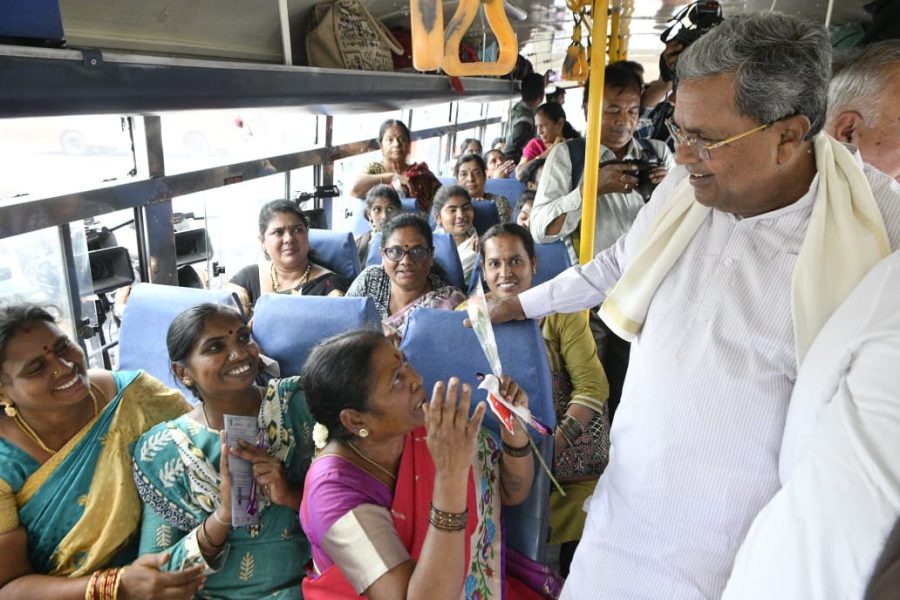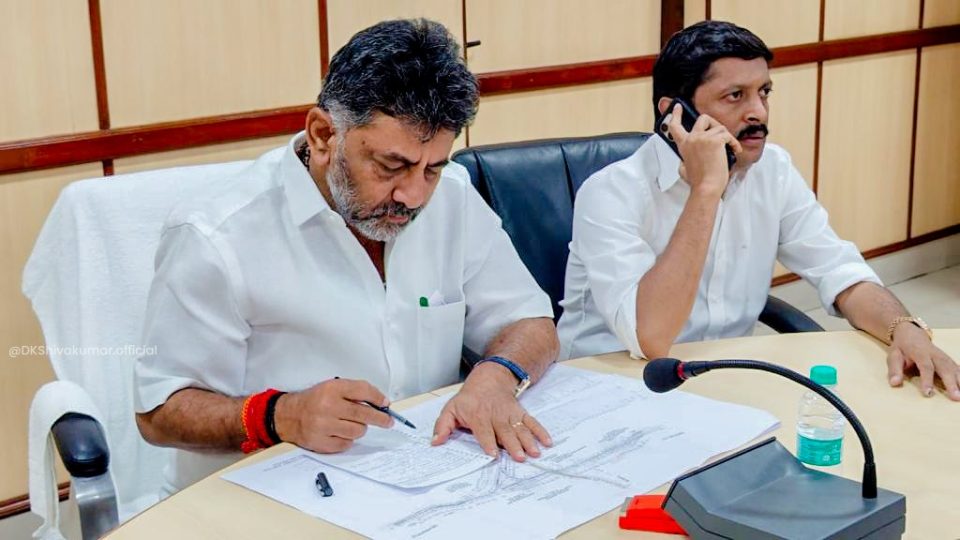
Karnataka: Free bus ride for women an instant hit, but govt coffer taken for a ride

Taking a leaf out of the Aam Aadmi Party’s (AAP) book of winning popular vote, the newly elected Congress-led government in Karnataka on Sunday (June 11) rolled out free bus ride for women of the state. On the first day of the rollout of the Nari Shakti scheme, at least 5.70 lakh women passengers travelled in state-run non-premium buses.
The scheme has since seen continued upsurge in women travellers availing themselves of the free bus service. Within just three days of the launching of the scheme, nearly a crore (98,58,518) women travelled free in state-run buses. According to official estimates, the free bus ride has cost the state exchequer Rs 21.06 crore in three days.
On the third day of the scheme, 20.57 lakh women passengers took a free ride in Bengaluru city buses, which cost the government Rs 2.02 crore, according to official figures.
Also Read: Free bus travel for women: Karnataka model vs TN, other states
As many as 11.09 lakh women travelled in the buses run by the North West Karnataka Road Transport Corporation costing Rs 2.72 crore to the state exchequer, while 5.89 lakh women passengers took a free bus ride with the Kalyana Karnataka Road Transport Corporation at an estimated cost of Rs 1.95 crore.
The Karnataka government intends to cover 41.8 lakh female passengers daily under the scheme, which may cost the exchequer Rs. 4,051.56 crore a year. According to officials, the government also intends to increase the strength of the buses the KRSTC runs to 15,000. The KRSTC has a fleet of 8113 buses, logging on average 26.79 lakh km daily.
But the free bus ride offered to women of the state has not gone down well with private bus operators. According to reports, private operators plying buses from Bengaluru, which serves towns near the Andhra Pradesh and Tamil Nadu borders such as Mulbagal, Chintamani, Kolar Gold Fields, and Nangali are struggling to attract regular passengers after the government launched the scheme. They are reportedly peeved at the government initiative and are mulling strike against the scheme.
Nari Shakti, which many see as a step closer to women empowerment and increasing their participation in the workforce, is the first of the five guarantees the Congress party had promised to the electorate during elections.

Karnataka, known for its robust economy and is one among the top revenue-generating states, will require between Rs. 55,000 and Rs. 60,000 crore annually to implement all five guarantees.
The Bharatiya Janata Party (BJP) had threatened to launch a statewide campaign in Karnataka to force the Congress government to implement the guarantees, when it saw a delay in the announcement of the rollout of the schemes. Though it was a tough call, as senior Congress leader and Deputy Chief Minister DK Shivakumar said, the launch of the first guarantee scheme has silenced the saffron party.
The launch of the scheme can provide a template for future politics of the party in other states that caters to the real needs of the electorate, Shivakumar said.
Also Read: CM Siddaramaiah launches free bus travel scheme for women in Karnataka
It may herald an era of what both Prime Minister Narendra Modi and experts call “freebie politics”, where ruling dispensations must go beyond emotive issues and deliver on poll promises they make to the electorate. If the Karnataka template catches up with ruling parties other than the BJP, it can potentially upset the BJP’s apple cart in coming general elections.
Also Read: Karnataka’s free power scheme: Who is eligible and all you need to know
It was the AAP-led government in Delhi which first launched free bus ride scheme in 2019, attracting criticism from almost all quarters. However, the scheme is now being seen as a tool to women empowerment, facilitating women’s increased mobility and work participation. The AAP government had also offered free electricity up to first 200 units.


